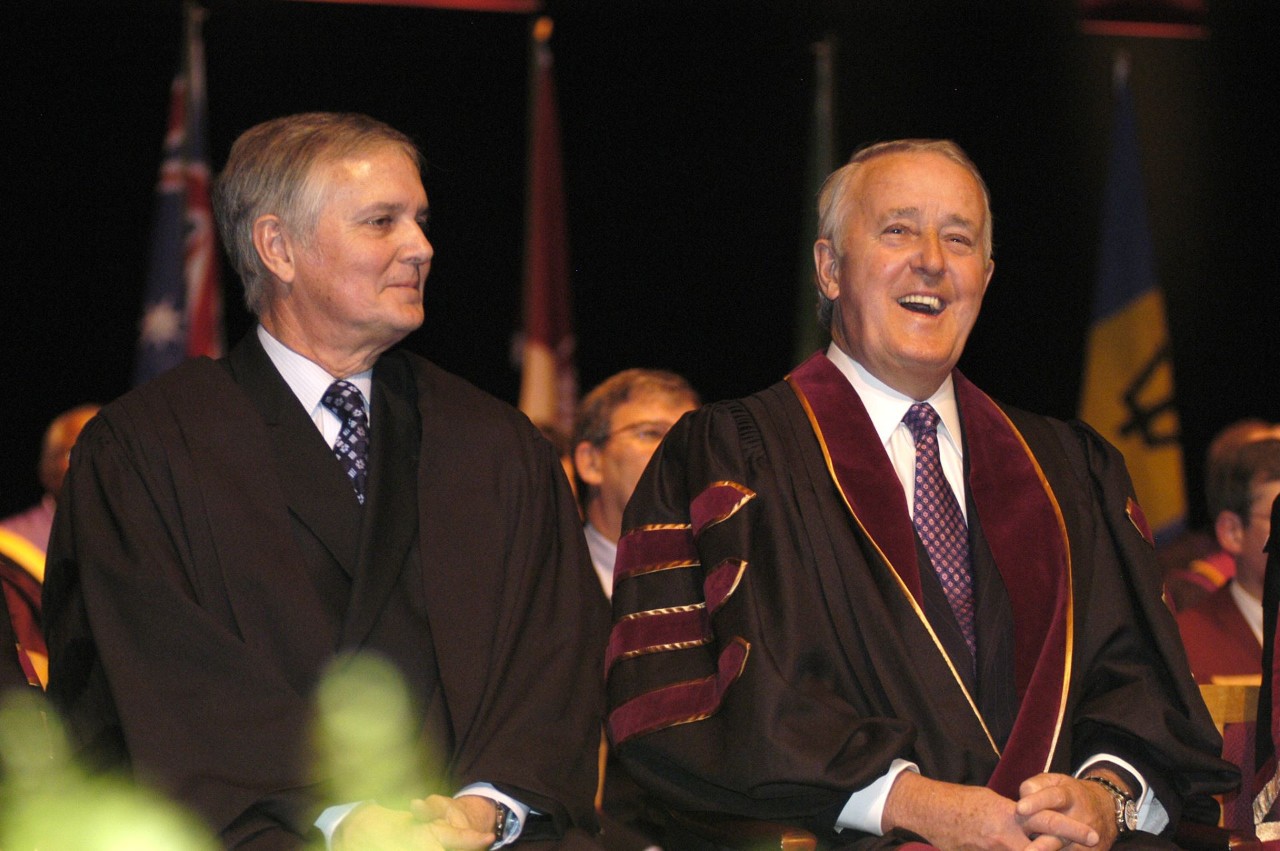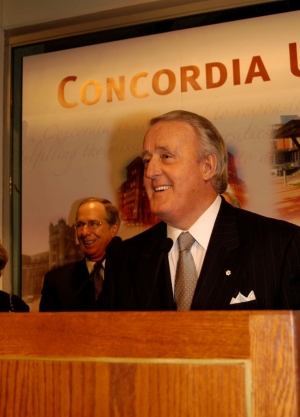Mulroney was a youth delegate in the 1956 leadership convention in Ottawa and served in many Model Parliaments. A star member of the debate team, he won a number of campus public speaking contests and interuniversity debates.
Forced to leave Dalhousie University’s law school due to a serious illness, he returned to study law at Université Laval in Quebec City and graduated in 1964.
Mulroney soon made his mark in the emerging field of Quebec labour law, starting at the Montreal law firm now known as Norton Rose Fulbright.
His accomplishments included ending a challenging strike at La Presse newspaper in Montreal in 1971.
Canadian leader
The would-be politician made his first bid for the PC leadership in 1976, losing to future prime minister Joe Clark. Mulroney turned to the business world, becoming president of the Iron Ore Co. of Canada, a subsidiary of U.S.-based Hanna Mining.
He completed a successful run to become PC leader in 1983. The next year, the party captured 211 seats, the largest majority government in Canadian history. The party won another majority in 1988.
Over his nine years in office, Mulroney led strong initiatives on many international issues, including a push against U.S. intervention in Central America and open condemnation of apartheid in South Africa, which ultimately helped end the repressive regime.
At home, his ambitious attempts at promoting national unity through the Meech Lake and Charlottetown accords did not succeed.
Mulroney did realize important domestic achievements, including directing his government to provide compensation for Japanese Canadians interned during the Second World War.
His government was also focused on protecting the environment and he notably led Canada into signing an acid-rain treaty with the U.S.
He led Canada as the first industrialized country to ratify the Convention on Biological Diversity in Rio de Janeiro, Brazil, in 1992. His government also opened three new national parks across the country.
Mulroney’s distinctions include the Order of Canada in 1998, the Ordre national du Québec in 2002, and the Global Citizen Award from the United Nations Association in Canada in 2001.
He also made a donation in support of Concordia students. “Brian Mulroney’s gift to establish the Irene Mulroney Scholarship at Concordia’s School of Irish Studies was a meaningful way for him to recognize his mother and his own heritage,” said Paul Chesser, BA 94, GrDip 97, Concordia’s vice-president of Advancement.
“Mr. Mulroney’s roots in an Irish Quebecer working class family have well suited him to a lifetime of negotiation, arbitration, problem-solving and reconciliation — extremely valuable skills in any society, but particularly in this highly diverse Canada of ours,” said Claude Lajeunesse, former Concordia president, when Concordia presented Mulroney with an honorary doctorate in 2005.
“He provoked us to action, he inspired us, and our democracy is the stronger for it.”
Mulroney is survived by his wife, Milica (Mila) Pivnički, attendee 1973, and their four children: Caroline, Ben, Mark and Nicholas.


 Brian Mulroney received an honorary degree from Concordia University in 2005. He is pictured with Marcel Danis (left), BA 65, former university leader and professor of political science.
Brian Mulroney received an honorary degree from Concordia University in 2005. He is pictured with Marcel Danis (left), BA 65, former university leader and professor of political science.
 Brian Mulroney delivering a speech at Concordia in 2004 | Photo: Image Photographique Internationale
Brian Mulroney delivering a speech at Concordia in 2004 | Photo: Image Photographique Internationale